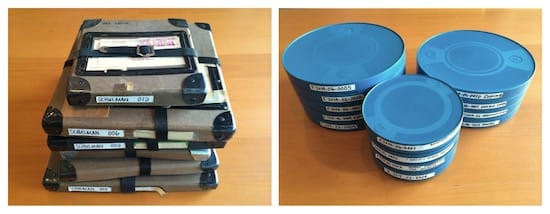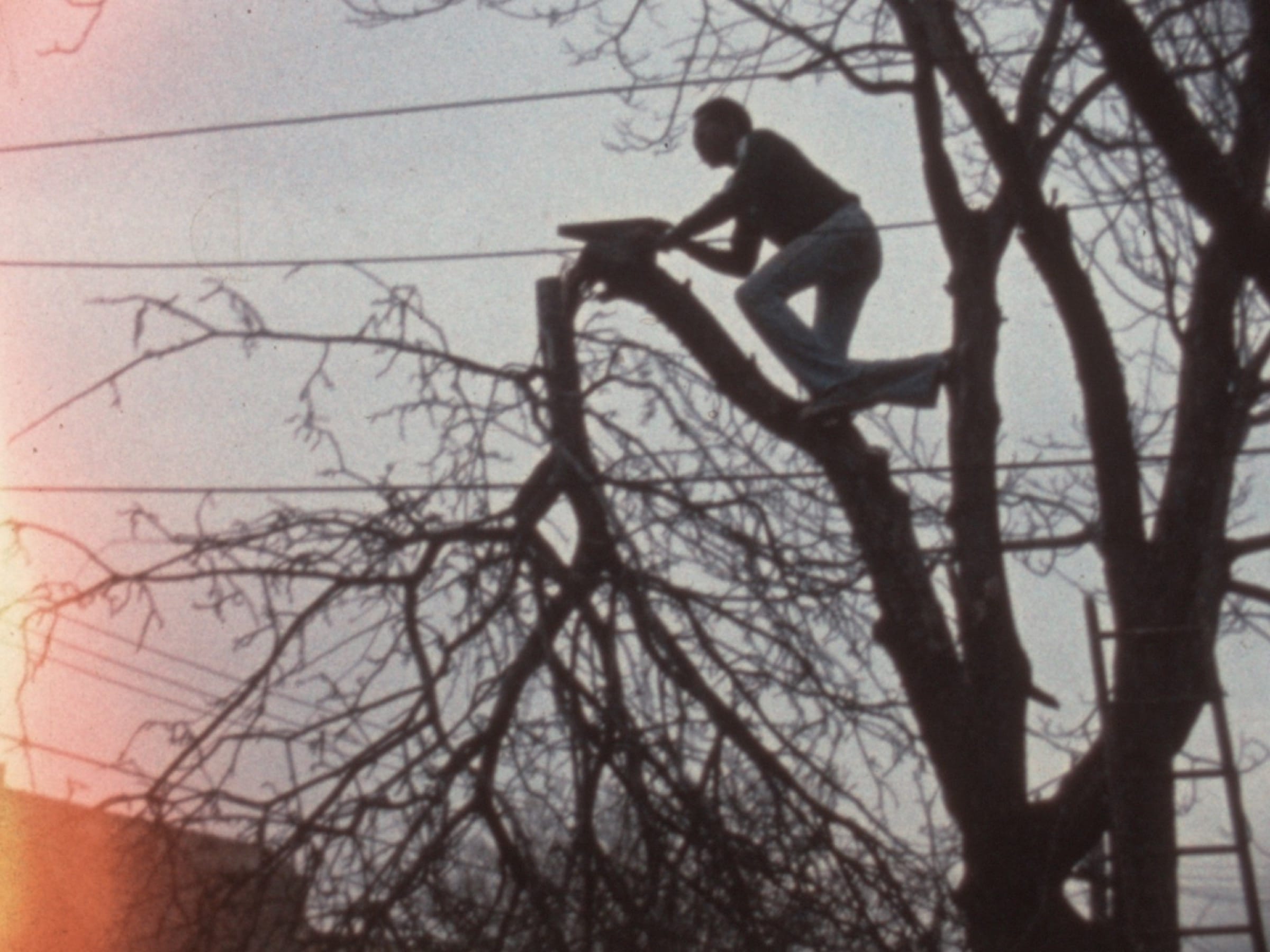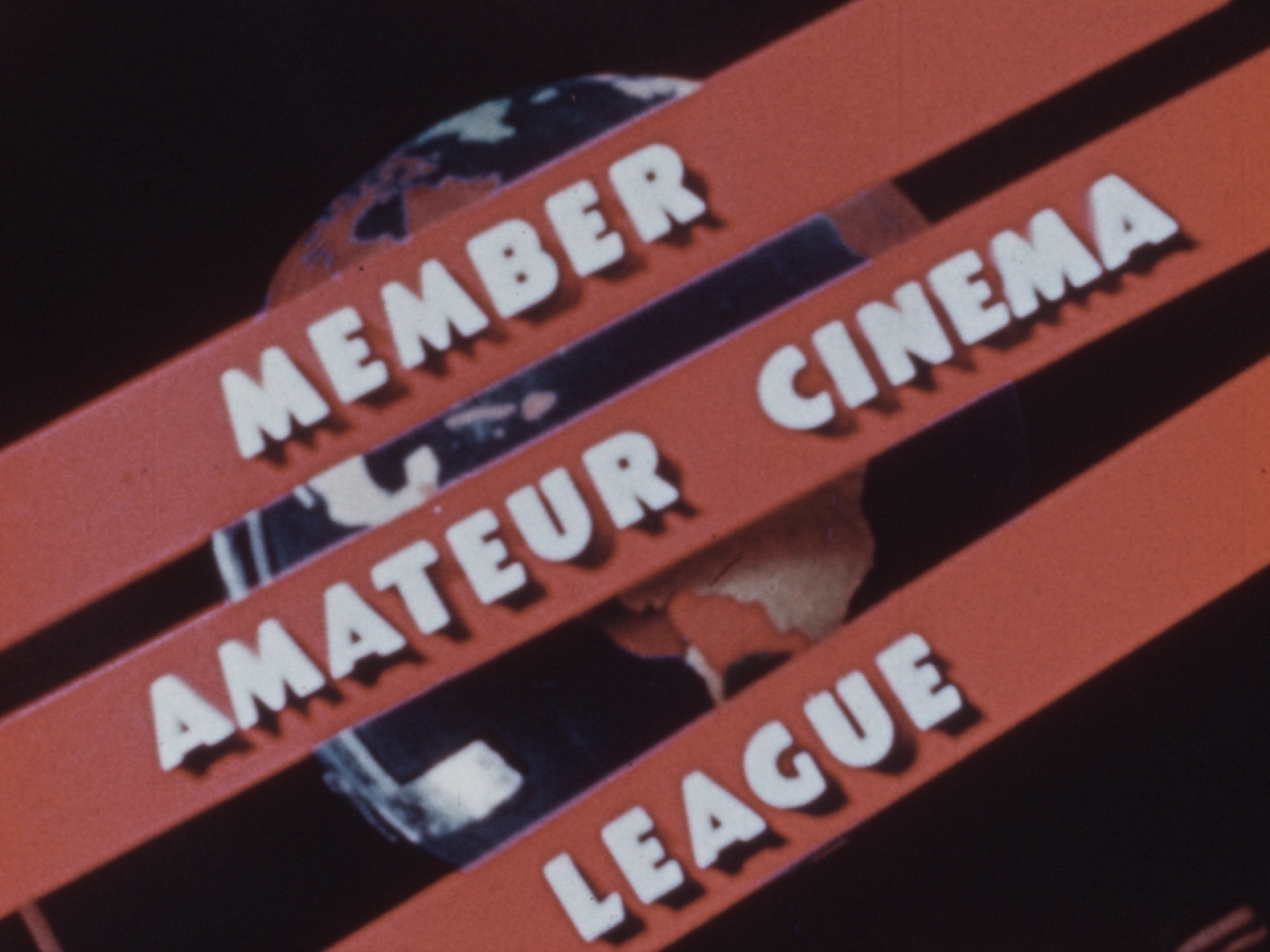
a good ol’ before & after shot of the Schulman Collection
Chicago winters are rough. We all know that. Both your body and emotions seem to be at war with the subzero. But for me, with this battle comes stronger emotions, or rather, the latching onto anything that makes me smile or feel a little more intensely – my neighbor’s frolicking huskies*, a good film, the discussion at last month’s CFA Crashers screening, listening to loud music while I walk to work, and lately, CFA’s Jerome L. Schulman Collection.
In September of 2014, Dr. Jerome L. Schulman and his wife, Joan Rehm, donated thirteen reels of 16mm film to CFA. The films were all produced by Jerome L. Schulman, M.D., who was a Child Psychiatrist in Chicago for more than forty years. He retired in 1993 after serving as Professor of Pediatrics and Psychiatry at Northwestern University Medical School and Chairman of Child Psychiatry at The Children’s Memorial Hospital in Chicago. During his long career he authored numerous articles and books as well as wrote and produced a number of award-winning short films. Since September, we have hand inspected, re-housed, digitized and published Dr. Schulman’s films on our website for all to see.

“Another Side of Summer” (1979) inside its new, archival quality home
All of Dr. Schulman’s films relate to the interaction of illness and emotions, particularly in children, and were intended for professional (doctors, nurses and hospital staff) and non-professional (patients and their families) audiences. In the majority of them, young patients and their families speak for themselves about their experiences with illness, handicaps and hospitalization.
It’s hard to ignore the heaviness of the topics at hand – mortality, life-threatening illness and the psychological effects of hospitalization, to name a few. But often overriding these subjects is a general sense of hope and positivity, especially from the patients themselves. We primarily see this in the documentaries of the collection, including “Another Side of Summer” (1979) – a film about a summer camp for children with cancer and the campers’ remarkable abilities to cope with his/her respective illness. We see this in “Our Son John” (1973) – a film that deals with the heartwarming interpersonal relationships of a multiply handicapped, retarded child and his family. We see this in “Coping” (1974) – a film about an 11 year old boy dying of leukemia – as well as “Donnie” (1976) and its follow-up film, “Mostly I Can Do More Things Than I Can’t” (1983) – films that follow a young boy and his family as they discuss their experience with hospitalization and the social issues surrounding this experience. The positivity and calmness among these subjects is overwhelming. They truly make me want to be a better person.
The dramatized films, often geared towards professional audiences, have a different tone. “The Chain” (1968) highlights the many opportunities for error within a hospital setting, or more specifically, the potential for error when prescribing medication to patients. The film is guided by a narrator and unusually upbeat music and utilizes a mix of actors and medical professionals to dramatize various scenarios. Through photo-montage (plus one very trippy intro), “The Child Beater” (1968), presents a dramatized and singular instance of child abuse. As the narrator states, the film “strives for an understanding of a unique problem.” Structurally speaking, “Point of View” (1967) (also streaming below) is the standout from this group. As the title suggests, we see hospitalization through a child’s eyes, or POV, and become witness to the child’s psychological response to hospitalization firsthand (and can we talk about the amazing fish/turtle/hamburger/etc sequence at 18m42s?!).
If you’ve been clicking around to the various titles, you may have noticed the majority of the color films are unfortunately faded. But despite this aesthetic flaw, the content holds strong and is definitely worth exploring. We invite you to browse and view all 13 titles here.
And warm shout outs to our intern, Sally Conkright, for her help with processing the collection. And to Monica Sullivan (the mother of John in “Our Son John”) for reaching out with appreciation and support…it was felt! So happy to hear that John is doing well in 2015.








